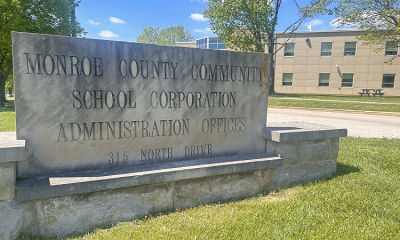Local News
Alcoholism among college-aged individuals is still a topic of investigation at IU

Indianapolis, Indiana – Tuesday saw the continuation of research on binge drinking and other extreme drinking habits among college-age adults from the Indiana Alcohol Research Center.
The National Institute on Alcohol Abuse and Alcoholism, which has supported the center since its creation in 1987, will pay for the study with a five-year, $8.65 million grant.
The objective of the study and the Indiana Alcohol Research Center, which is based at the Indiana University School of Medicine, according to the researchers, is to investigate the behavioral and neurological dangers of alcoholism.
Researchers from various universities in Central Indiana and across a variety of fields are part of the team.
According to Dr. David Karaken, director of the Indiana Alcohol Research Institute and professor of neurology at the Indiana University School of Medicine, the grant will enable the institute to better study alcohol consumption from a variety of angles.
“We believe that our combined diverse methods and perspectives are best suited to studying a problem of both great importance and complexity,” Dr. Karaken said in a statement.
According to Dr. Cristine Czachowksi, a psychology professor at Indiana University-Purdue University Indianapolis’ School of Science, the center allows for beneficial contacts between researchers from many fields.
“The crosstalk between many departments keeps us at the top of our game with regard to the latest findings and focused on the human experience of an alcohol use disorder,” Dr. Czachowski said in a statement.
Along with Drs. Czachowski and Karaken, Dr. Christopher Lapish is a professor of anatomy, cell biology, and physiology at the Indiana University School of Medicine. He says the team’s ultimate goal is to make more breakthroughs.
Dr. Lapish said in a statement, “Our ability to measure how brain function is altered in alcohol use disorder is rapidly improving. This is true for human and rodent models of the disorder. Our hope is that we can find similarities across the species, which, in turn, will facilitate new treatments.”
To spread knowledge about the science, prevention, and treatment of alcoholism, the researchers will also collaborate with the local population, educational institutions, healthcare professionals, and others.
-

 Indiana2 weeks ago
Indiana2 weeks agoWhile staff members get ready to move into a new structure, the Westfield Washington Public Library shutters
-

 Local News2 weeks ago
Local News2 weeks agoVehicle crashes into the Monroe County food bank
-

 Local News2 weeks ago
Local News2 weeks agoNew Fort Wayne mayor, its 1st Black leader, in caucus to replace late mayor
-

 Local News2 weeks ago
Local News2 weeks agoIndiana Chamber of Commerce program recognizes Indiana Members Credit Union
-

 Local News2 weeks ago
Local News2 weeks agoThe biggest teachers union in Indiana supports Jennifer McCormick for governor
-

 Local News2 weeks ago
Local News2 weeks agoAn interim superintendent was selected during the MCCSC board meeting, and Childs-Templeton Elementary Schools will merge
-

 Indiana1 week ago
Indiana1 week agoAmazon Web Services is investing $11 billion to build a new data center in Indiana
-

 Local News1 week ago
Local News1 week agoDemocrat Jennifer McCormick gets teacher union endorsement in race for Indiana governor






Leave a Reply